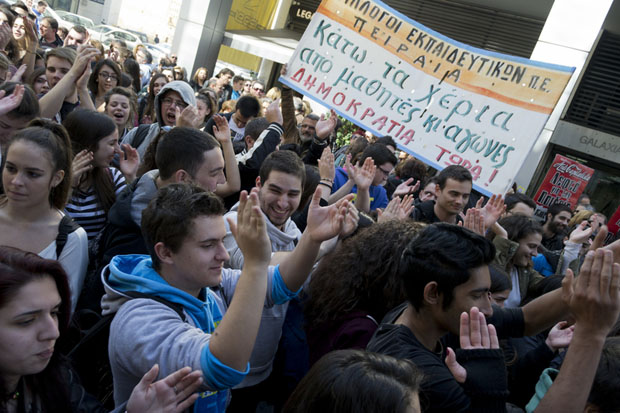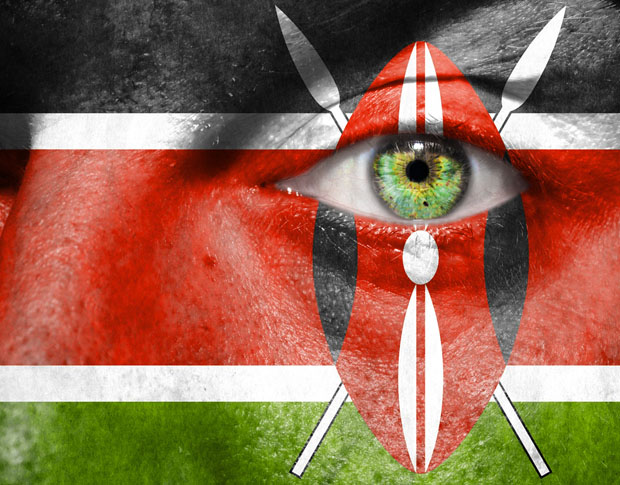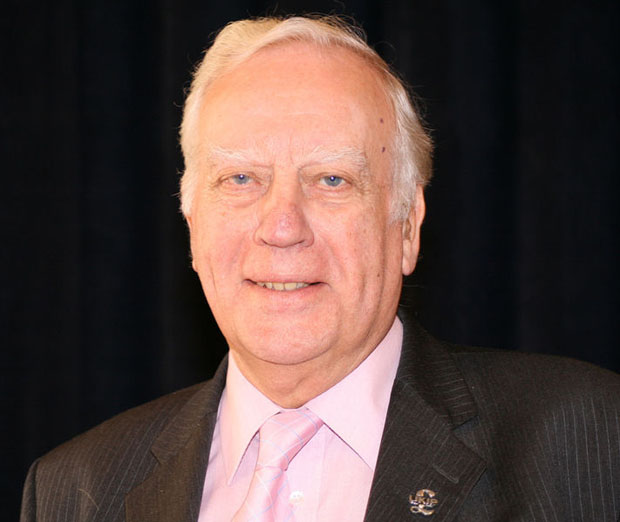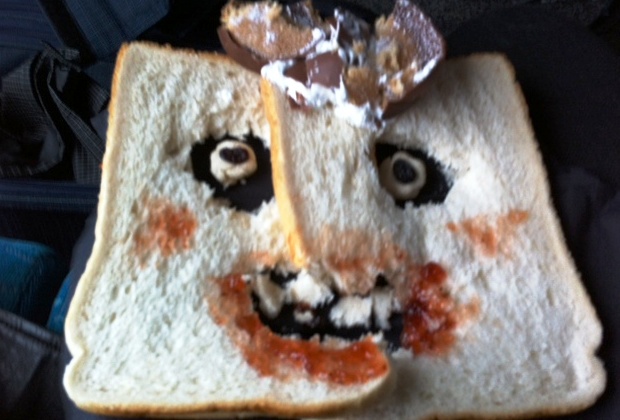24 Feb 2014 | Europe and Central Asia, Greece, News

Students protesting outside the offices of Piraeus Public Prosecutor (Image: Nikolas Georgiou/Demotix)
Between 200 – 250 students last week staged a demonstration outside the offices of the Piraeus’ Public Prosecutor against police interference in school protests, following high school students being taken in for police questioning.
Joined by the Secondary Teacher Union of Piraeus and the Parent Association of Keratsini the students shouted slogans like “we won’t be terrorised” and “money for education”. The protest came after students were interrogated by police over an occupation of Keratsini’s 2nd High School in October, in protest at the murder of rapper Pavlos Fyssas by a member of the far right Golden Dawn.
Students were asked about their own and their teachers’ political preferences, especially those who had been striking against public job cuts and forced transfers. There were also media reports that students were questioned about their parents’ voting preferences. A high school student who participated in the protest said they were asked “to give as many names as possible”, adding that they were threatened with having a criminal record if they refused.
Greek police has said it was obliged to conduct an investigation into the matter. It did so on the basis of a legislative act from 2000 punishing by imprisonment attempted occupations or disruption of the “smooth functioning” of a school. The act remained inactive until 2011 when school protests against government plans on privatisation of education, prompted a Supreme Court order for investigations in schools.
Maria Delli, board member of the Parent Federation in Attica District told Index on Censorship: “It is not an unprecedented incident, we have been experiencing police interference and student profiling in recent years. The government is trying to criminalise the common struggles of students and teachers for education. Students complain about the obvious: Not having teachers, not having heating infrastructures and having to pay for their books during the economic crisis.” She added that there was no damage to the school.
Nikos Peritoyannis, president of Parent Association of Keratsini commented to Index on Censorship: “It is a positive outcome. It can be definitely seen as a result of the pressure from the protest actions undertaken by students, teachers and other social groups. However, it does not mean that similar cases will cease to exist. As the struggle against the privatization of education goes on, the government will have to intensify monitoring and suppressing policies.”
On Monday 20 February, Piraeus’ Public Prosecutor finally decided to temporarily withdraw the case as there was no criminal offence for which to prosecute the students. Apart from the incident in Keratsini, Athens’ Attica General Police Directorate (GADA) has also issued a document informing police stations to conduct meetings with school directors in order to disclose “any immediate problems schools are facing”. On 13 February, a similar document reached the director of a kindergarden in New Psychiko, Athens. There was public outcry from teachers’ associations in the media.
This article was posted on 24 February 2014 at indexoncensorship.org
19 Feb 2014 | Africa, Kenya, News

(Image: Semmick Photo/Shutterstock)
The Kenyan government’s directive to schools to use tribal mother tongues as the main language of instruction in junior school classes has elicited mixed reactions among the country’s education stakeholders. Teacher’s unions and sections of Kenyan society fear it will promote ethnic division, and separate children along tribal lines.
The unions have come out guns blazing against the directive. The Kenya National Union of Teachers (KNUT) has labelled the directive completely “analogue”, and Secretary General Mr. Wilssion Sossion said they were not consulted before it was issued. He added that the unions cannot be overlooked in these cases, and urged the Ministry of Education to suspend the directive and initiate wider consultations.
Omboko Milemba, the chairman of the Kenya Union of Post Primary Education Teachers (KUPPET), argues that directing teachers to teach in mother tongue at the lower level — class one to three, which come after nursery school and kindergarten — will serve to increase the tribalism that is already rampant in the country.
Teaching in vernacular can only work in rural areas where people from one tribe largely reside in the same place. In urban areas, however, where people from various tribes mingle, as pupils and teachers come from different tribal settings and backgrounds, it will be a challenge to enforce the directive.
Another point being raised is whether there are even enough teachers to implement the plan. According to KNUT the country needs close to 80,000 additional teachers to boost the education sector. There is a further problem in the case of smaller tribes, like the Elmolos and Ogieks, as it will be difficult to get enough teacher who can teach in their languages.
John Wesonga, from the Kakamega County Kenya National Union of Teachers says the government is confusing Kenyans with a lot of poorly planned programmes and directives. He insists they should concentrate on the promise by President Uhuru Kenyatta to give class one pupils laptops, instead of coming up with a new proposal to make Kenyans forget this earlier pledge.
Busia County KNUT branch Executive Secretary Mark Oseno, added that the directive will cause a lot of confusion in the curriculum development if implemented, as it will be applied selectively. “If the disadvantages outweigh the advantages, then it is not advisable to reintroduce mother tongue in lower classes,” he said.
A few of those in support of the plans say exposing children to their mother tongue will help them cope faster with learning a subsequent second language. Those against, however, stress the need for the government to consult education stakeholders across Kenya’s 47 counties, to prevent a plan that will divide pupils along tribal lines.
This article was published on 19 February 2014 at indexoncensorship.org
16 Jan 2014 | News, Politics and Society, United Kingdom

Derek Clark MEP (Image: Euro Realist Newsletter/Wikimedia Commons)
The UK Independence Party has promised it will ban the teaching of climate change in schools, if elected in May next year.
The party’s 2010 manifesto included a pledge to ban Al Gore’s Oscar-winning global warming documentary An Inconvenient Truth from schools.
But this week UKIP Education spokesman MEP Derek Clark has said the party will go even further. Clark told Index on Censorship:
We will still ban Al Gore’s video for use in schools if I’ve got anything to do with it. I will not have much opposition within the party. It is, of course, not just this video which needs banning; all teaching of global warming being caused in any way by carbon dioxide emissions must also be banned. It just is not happening.”
Dr Nick Eyre, Jackson Senior Research Fellow in Energy at the ECI and Oriel College Oxford and Co-Director of the UK Energy Research Centre, said of the proposal: “It is anti-scientific nonsense – as well as a worryingly repressive approach to education. The very strong link between climate change and anthropogenic carbon dioxide emissions is overwhelmingly accepted by the global scientific community, and has been for at least 25 years.”
A recent IPCC report shows that scientists believe with 95% certainty that humans are the “dominant cause” of global warming. A 2013 study by UK Energy Research Centre, however, showed that 46% believe that climate change is ‘partly caused by human activity’, 22% believe that climate change is ‘mainly caused by human activity’ and another 6% believe that climate change is ‘entirely caused by human activity’. In total 74% of those surveyed believed that human activity is responsible for climate change.
This article was posted on 15 Jan 2014 at indexoncensorship.org
An earlier version of this article stated: “95% of scientists believe that humans are the ‘dominate cause’ of global warming.” It has been edited to: “scientists’ believe with 95% certainty that humans are the ‘dominate cause’ of global warming.
This article was amended to include the total number of people in the UK Energy Research Centre study who believe that human activity is responsible for climate change.
27 Nov 2013 | News, United Kingdom

“Michael Gove” (Image Julia Farrington)
It’s 5am on Saturday a crowd of artists, film-makers, musicians and poets are gathered opposite London’s Whitechapel gallery, waiting to board a coach to Scarborough for the Art Party Conference. It is cold and extremely early so my heart is warmed by the lively figure of artist Bobby Baker handing out ‘packed breakfasts’ to all us passengers.
If I was looking forward to tasty home cooking I should have known better, because the breakfasts are a piece of participative conceptual art and the food – a couple of slices of white bread, some currants, marge and sachets of jam, ketchup and vinegar – came with instructions: Use the food to make a portrait of Education Secretary Michael Gove, photograph it, tweet it and then eat it. By eating it you are going some way to understanding what it is like to be Michael Gove and therefore you are that much closer to being able to change him.
The artists are concerned about potential changes to UK education that they see as undermining the arts and free expression in the UK.
Michael Gove’s reforms which downgrade arts education at GSCE are the trigger for the Art Party conference and on the coach on the way up, Bob and Roberta Smith (founder and force behind the whole project) led us in our chant – “Where are we going?” “Scarborough” “What do we want?” “To better advocate the arts to government” was a bit of a mouthful. But that is the heart of artist Bob and Roberta Smith’s argument – how can something that is so vital and fundamental to human existence and has the power to transform, inspire and regenerate be swept aside.
Everything was filmed, the coach trip and the whole day of events, discussions and provocations at the Spa Complex in Scarborough, and the footage will be over-laid by the story of an imaginary figure called “Michael Grove MP” who attends the conference and has a life-changing epiphany about the power and importance of art. It will be released in August next year and will be a central part of The Art Party campaign in the lead up to the 2015 elections.
Like everything in the conference, the film will be a combination of serious message and playfulness; to get to a moving discussion featuring Sam West, Maureen Duffy, Haroon Mirza and Geoff McMillan on “Why is art important”, you passed an Aunt Sally side show where conference delegates were busting porcelain busts of Michael Gove.
Bob and Roberta Smith’s letter to Michael Gove, painted on two pieces of eight by four took centre stage at the Spa ends with a rallying cry. “You will be opposed by all people interested in art, design, free speech, freedom and democracy and probably also by a few bankers and investors interested in British products and exports who are concerned about the colour of their money…Education is about sowing seeds not setting standards for the shape of bananas.”




